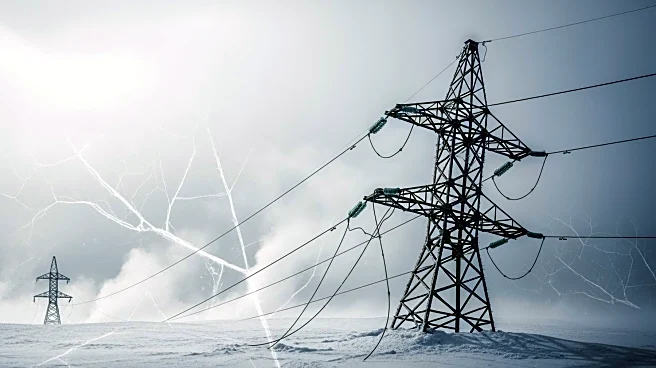What's Happening?
A new food trend inspired by the Netflix movie 'KPop Demon Hunters' is causing concern among medical professionals due to the risk of serious burn injuries. The trend involves children and teenagers attempting to replicate a scene from the movie by consuming hot instant noodles. According to Dr. Colleen Ryan, a burn care specialist at Shriners Children's Boston and a professor at Harvard Medical School, the injuries are primarily occurring when children handle microwaved noodles, which are often too hot for them. The clinic has reported seeing two to three burn cases weekly related to this trend. The American Burn Association highlights that children's skin is thinner than adults', making them more susceptible to burns from hot water. A study from the University of Chicago found that 31% of childhood scald admissions were due to instant noodles. Dr. Ryan emphasizes the importance of immediate first aid, recommending 20 minutes of cool water followed by seeking medical help.
Why It's Important?
The trend poses significant health risks, particularly to children, who are more vulnerable to burns due to their thinner skin. The popularity of viral challenges among young people can lead to dangerous situations, as seen with this trend. The injuries not only cause physical pain but can also result in lifelong scars and emotional distress. This situation underscores the need for increased awareness and education about the potential dangers of viral trends, especially those involving food and heat. Parents and guardians are urged to supervise their children closely and educate them about the risks associated with such activities. The broader impact includes potential increases in healthcare costs and resource allocation to treat these preventable injuries.
What's Next?
Medical professionals and organizations may increase efforts to raise awareness about the dangers of this trend. Educational campaigns targeting parents and children could be implemented to prevent further injuries. Additionally, platforms hosting viral content might consider monitoring and regulating content that could lead to harmful imitations. Schools and community groups might also play a role in educating children about the risks of participating in such trends. The healthcare community may continue to track and report cases to better understand the scope of the issue and develop strategies to mitigate it.
Beyond the Headlines
This trend highlights the influence of media on youth behavior and the potential consequences of imitating fictional scenarios. It raises ethical questions about the responsibility of filmmakers and streaming platforms in ensuring their content does not inadvertently encourage harmful behavior. The situation also points to the need for better safety measures in household appliances, such as microwaves, to prevent accidental injuries. Long-term, this could lead to discussions about the role of media literacy in education and the importance of teaching children to critically evaluate the content they consume.








